Dr. Smith’s Black Entrepreneurship Course Connects Students with Community Leaders for Real-World Engagement
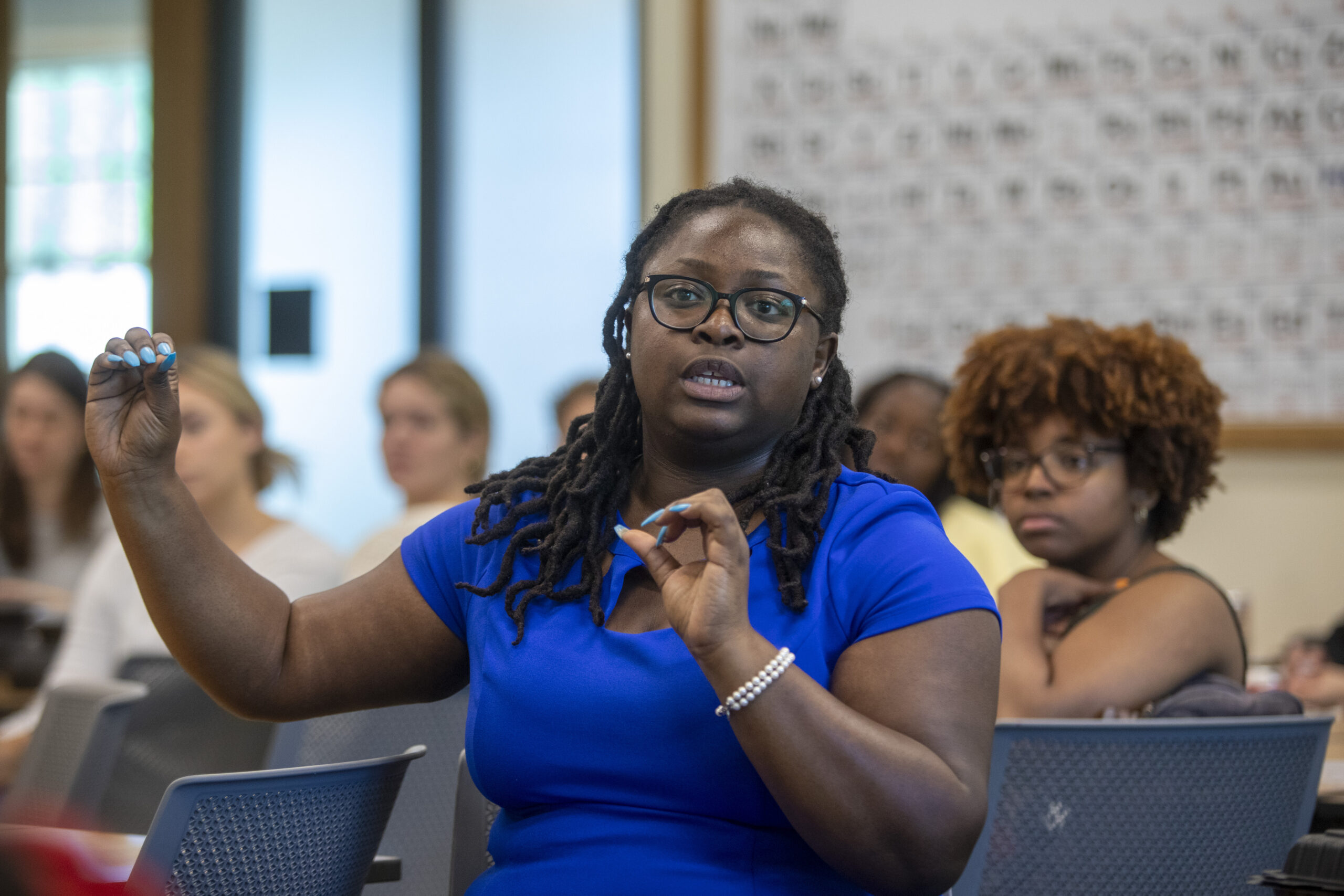
By Erin Marlow, Communications Specialist
Brave Spaces, Entrepreneurship, and Food. These are the words at the heart of Dr. Ariel D. Smith’s course, “Black Entrepreneurship in America” (ENT 304C).
An elective in the Center for Entrepreneurship, the class tells United States history through the lens of Black entrepreneurs, whose contributions and experiences helped lay the foundation of entrepreneurship in America today. Over the course of the semester, Dr. Smith, Assistant Teaching Professor in the Center for Entrepreneurship, introduces students to an array of poems, documentaries, policy briefs, speeches, and podcasts, each offering a new perspective from which to understand the complex nature of African American enterprise. “If you have that context, then you can understand what you’re experiencing right now,” said Dr. Smith. The innovative and interdisciplinary approach Dr. Smith brought to the classroom saw her enrollment go from eight students in Fall 2023 to triple that number in Spring 2024. Currently, she has 21 students enrolled this Fall 2024 semester.
“Dr. Smith’s Black Entrepreneurship class was the greatest class I took at Wake Forest University,” said Isaiah Chaney, one of Dr. Smith’s former students. “The experience and conversations within the class were one in a million. I believe that every person should be able to have this kind of experience.”
Dr. Smith recognizes the challenges students may face when stepping into new conversations. “In the classroom, especially when we’re talking about topics that involve race, it involves sometimes confronting the very harsh truths of our past and present. People can get nervous.” Dedicated to fostering her students’ growth, Dr. Smith describes her class as a “brave space,” where students are encouraged to express their thoughts and opinions but also learn to listen empathetically to others’ points of view. “When you’re in a brave space, you have to have the courage to speak up, the courage to ask questions, the courage to put yourself in a space that’s probably unfamiliar to you. But you also have to have the intellectual humility to hear other people’s perspectives. And I was pleased to hear that many of the students really embraced that.”
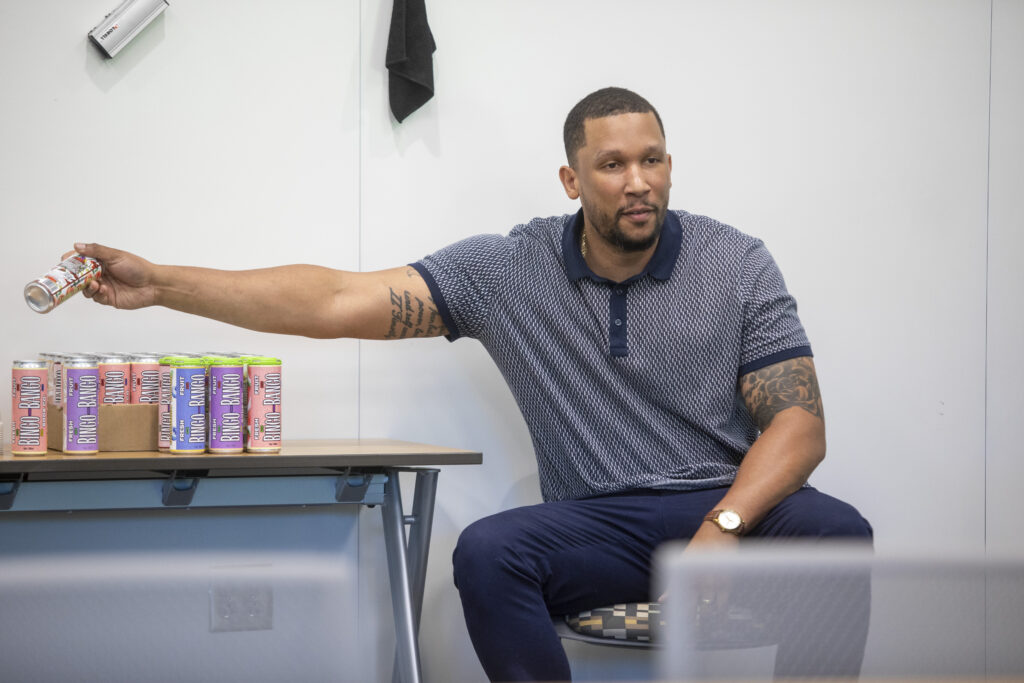
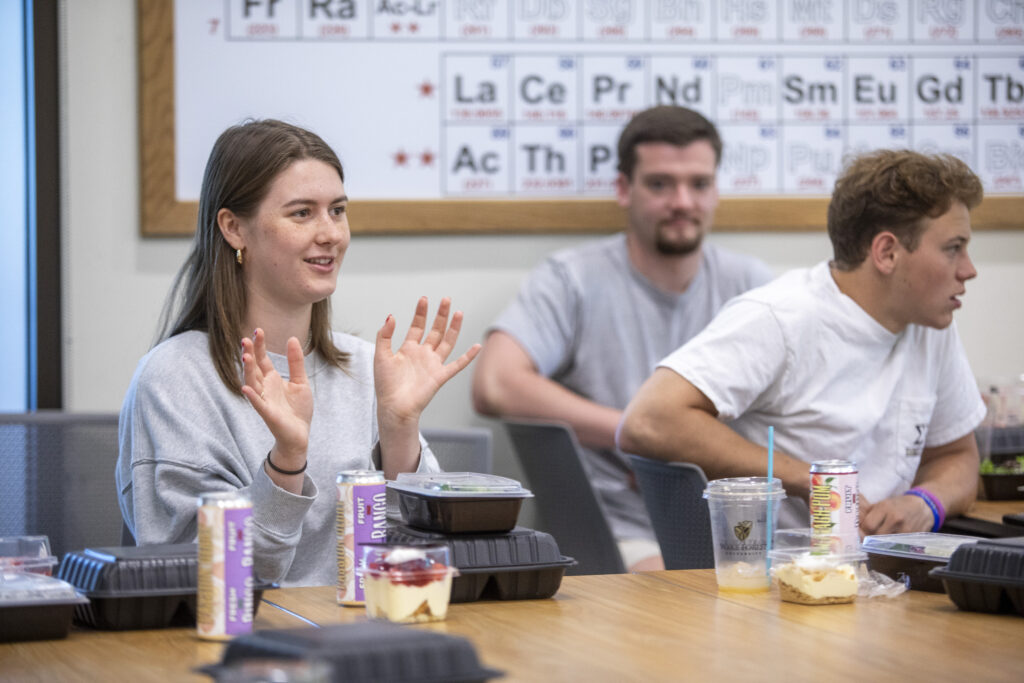
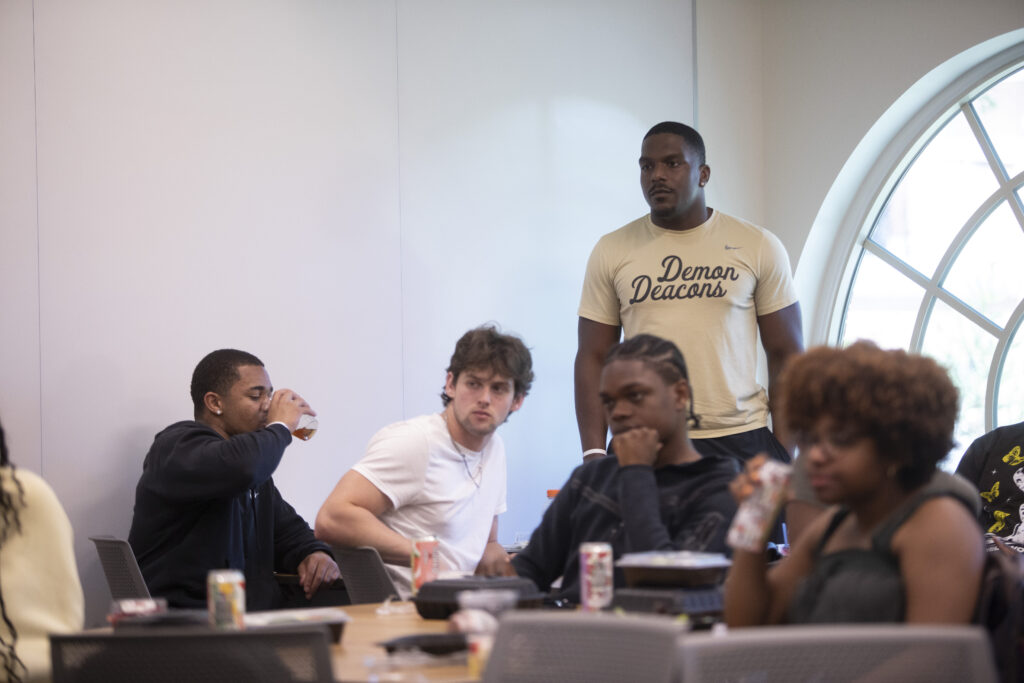
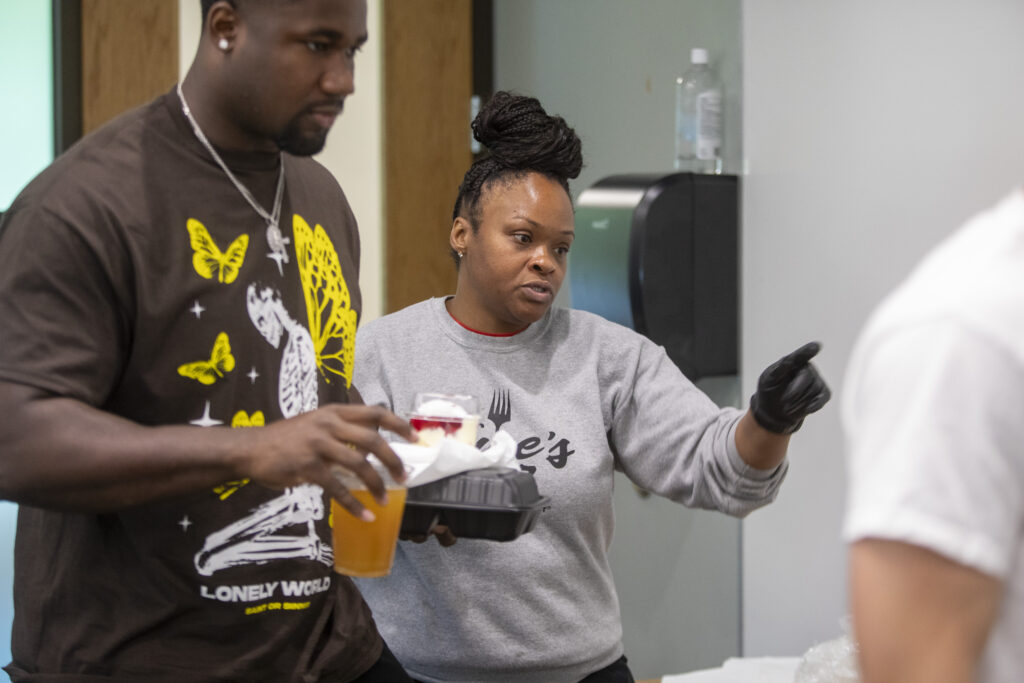
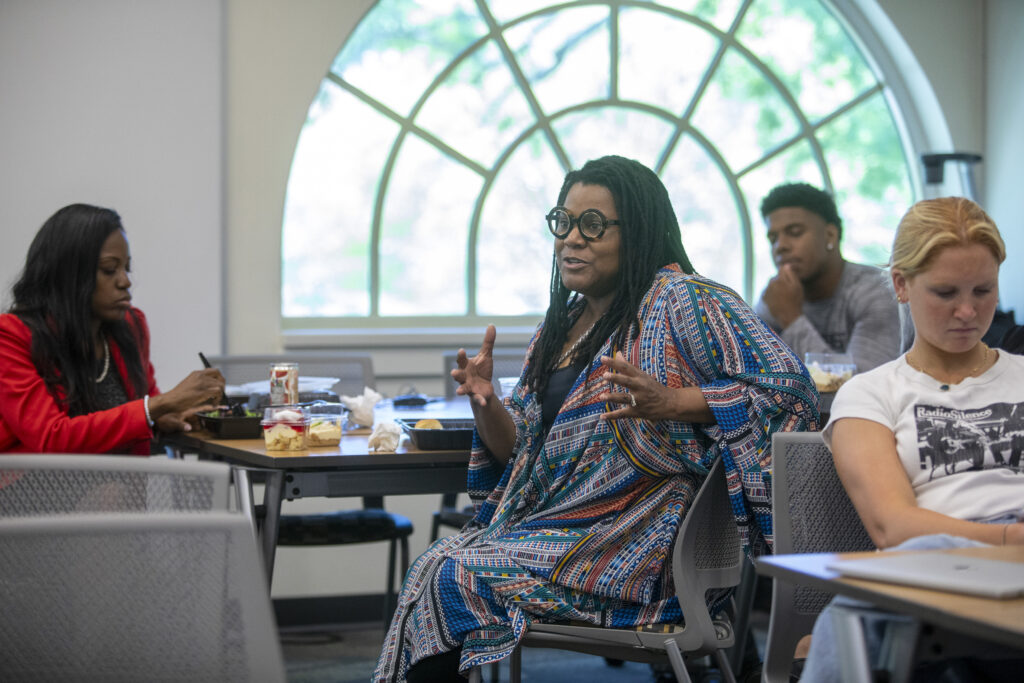
Indeed, it was a similar kind of boldness that sparked Dr. Smith’s years-long investigation of Black entrepreneurship and its impact on the local community and the country as a whole. As an undergraduate studying business at the University of Alabama at Birmingham, Dr. Smith developed a program focused on understanding the vitality of Black businesses during the Civil Rights Movement and in the economic, racial, social, and political climates of Birmingham 50 years later. Following the success of the program, Dr. Smith was invited to lead fellow college students and high schoolers in a strategic development plan for Alabama’s 6th Congressional District – a project that was both invigorating and challenging as a student herself at the time. After moving to Indiana for her Ph.D., Dr. Smith noticed a growing number of Black-owned food trucks popping up in her hometown and wondered about the role of Black businesses, specifically food trucks, on a wider scale.
Arriving at Wake Forest in 2023, Dr. Smith knew she wanted to use her experiences in Birmingham and Indiana to forge groundbreaking communities of mentorship right here in Winston-Salem.
For her debut class, Dr. Smith invited 20 local Black business owners to share a meal with her students and speak about their journeys as entrepreneurs. Among the guests was Patrice Jeffreys, owner and founder of Trice’s Eatz, a local Soul Food catering company. Trice’s Eatz provided the food for the conversation and now works with multiple departments across campus. Students also met Selina Jones, a local self-employed realtor with more than 20 years of experience as a business owner. Over plates of garlic chicken and Trice’s Eatz famous Rasta pasta, Jones spoke with students about the value of land ownership and property ownership and their centrality in the economy.
Another guest speaker, Ken Branson, a photographer, videographer, and storyteller, spoke to students about generating passive income while they complete their studies.
“This experience allowed me to reflect on my path and share practical insights that could guide students as they embark on their own ventures. It was incredibly rewarding.”
Ken Branson, photographer, videographer, and storyteller
Other guests included the Executive Director of the North Carolina Black Repertory Company and accomplished stage director India Mack; Vice President of Winston Salem’s Chamber of Commerce Gloria Hairston; and Shanae Levine, a Loctician who formerly worked with the Carolina Panthers. As students learned from the entrepreneurs’ experiences, bonded over shared interests, and strengthened their networks, Dr. Smith’s vision came to life.
“I looked around the room and saw students locked in with an entrepreneur or community member, and that’s when I knew it was all worth it. If I can get even one student to see the world as a bigger place than their own bubble, I’m doing my job. I’m doing what I believe Pro Humanitate is all about. Whether they become entrepreneurs or not, they’ll hopefully become engaged citizens,” said Dr. Smith, reflecting on the day.
Dr. Smith noted that the resulting connections created an impressive “$15K economic impact in the Winston-Salem community.”
“Ariel brings a valuable focus on the community,” says Dr. Dan Cohen, Executive Director of Wake Forest’s Center for Entrepreneurship. “Her courses are well-attended because they add something new, and enrollment in her courses are robust as a result.”
Dr. Smith has big plans for the future of the course, including the establishment of a certificate program in Black Entrepreneurship. “I would love to build [the material] out into more courses that can delve into topics and do them justice,” she said.
Dr. Smith also foresees bringing in even more local entrepreneurs and hosting three or four catered events a semester. Above all, she hopes her students realize the impact they have right now, not just what they hope to have with more experience.
“I want them to understand the autonomy that they have now. The stewardship they have, the responsibility that they have to serve the community,” she said.
“I looked around the room and saw students locked in with an entrepreneur or community member, and that’s when I knew it was all worth it. If I can get even one student to see the world as a bigger place than their own bubble, I’m doing my job. I’m doing what I believe Pro Humanitate is all about. Whether they become entrepreneurs or not, they’ll hopefully become engaged citizens.”
Dr. Ariel D. Smith, Assistant Teaching Professor in the Center for Entrepreneurship

